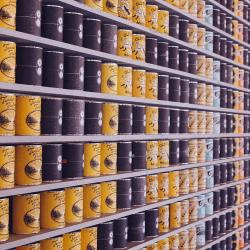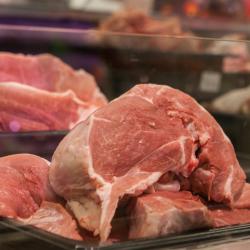The Importance of Refrigeration in Food Safety
One of the pivotal technologies that has revolutionized food safety is refrigeration. Since its inception, refrigeration has not only transformed the way we store and preserve food but has also played a crucial role in reducing foodborne illnesses, extending shelf life, and minimizing food waste.
Refrigeration and Microbial Growth
At the heart of food safety concerns is the growth of microorganisms such as bacteria, yeasts, and molds, which can lead to food spoilage and foodborne diseases. Most pathogenic bacteria thrive between temperatures of 40°F (4°C) and 140°F (60°C), often referred to as the "danger zone." Refrigeration slows down the metabolism of these microbes, thereby inhibiting their growth. By maintaining temperatures at or below 40°F (4°C), refrigeration ensures that food remains safe for consumption over extended periods.
Extending Shelf Life
Refrigeration is essential in prolonging the shelf life of perishable foods. Dairy products, meats, fruits, and vegetables benefit from the cold environment, which helps in preserving their freshness, texture, and nutritional value. By slowing down the enzymatic and oxidative processes that lead to spoilage, refrigeration allows consumers to store food for longer durations, reducing the frequency of grocery shopping and providing more flexibility in meal planning.
Reducing Food Waste
Food waste is a significant global issue, with millions of tons of food discarded every year due to spoilage. Refrigeration plays a key role in mitigating this problem by preserving food quality and preventing premature spoilage. This preservation is not only economically beneficial for consumers but also important for environmental sustainability, as it helps in conserving resources and reducing greenhouse gas emissions associated with food production and waste.
Enhancing Food Distribution
Refrigeration has enabled the globalization of the food supply chain. Perishable goods can now be transported over long distances without compromising their safety and quality. This advancement has expanded consumer access to a diverse array of foods year-round, regardless of local seasons or geographic limitations. Cold chain logistics, which involves a series of refrigerated production, storage, and distribution activities, ensures that food products remain within safe temperature ranges throughout their journey from farm to table.
Challenges and Considerations
While refrigeration is indispensable for food safety, it is not without its challenges. Energy consumption is a significant concern, as refrigerators and freezers account for a substantial portion of household and commercial energy use. Innovations in energy-efficient refrigeration technologies and the use of environmentally friendly refrigerants are crucial for minimizing the ecological impact.
Moreover, proper usage and maintenance of refrigeration equipment are essential. Consumers must be educated about correct storage practices, such as not overloading refrigerators, ensuring proper air circulation, and regularly checking appliance temperatures.
Conclusion
Refrigeration is a cornerstone of modern food safety, offering numerous benefits that extend beyond simple preservation. By controlling microbial growth, extending shelf life, reducing food waste, and facilitating global food distribution, refrigeration plays an integral role in ensuring that the food we consume is safe, nutritious, and sustainable. As technology advances, continued innovation and education will be key to maximizing its effectiveness and minimizing its environmental footprint.






















